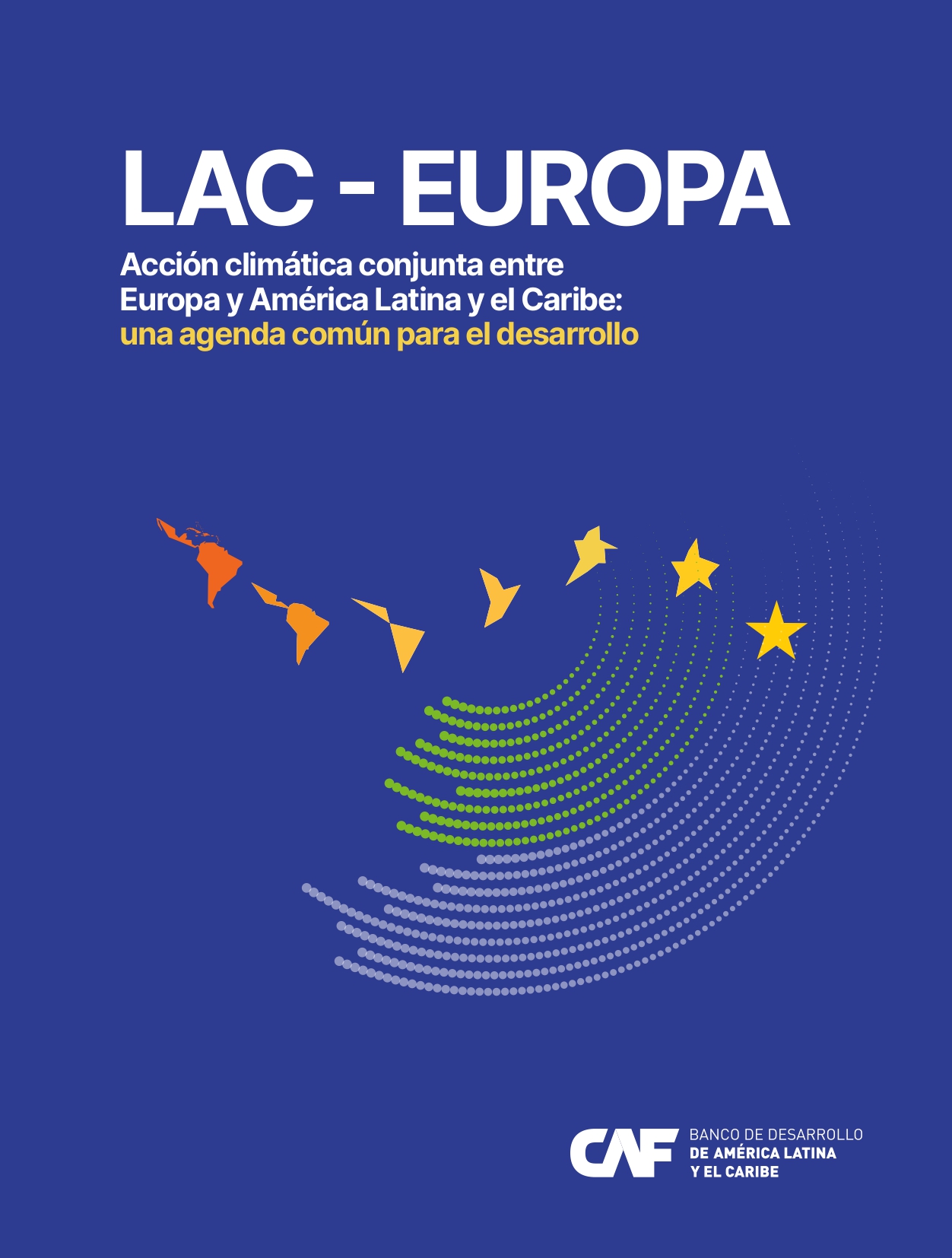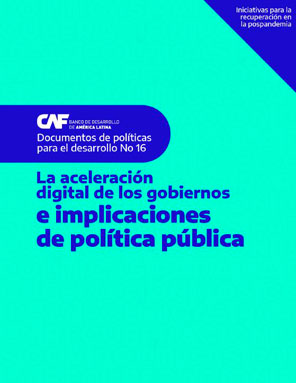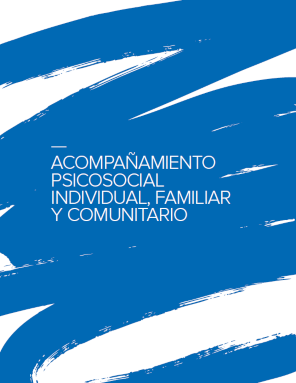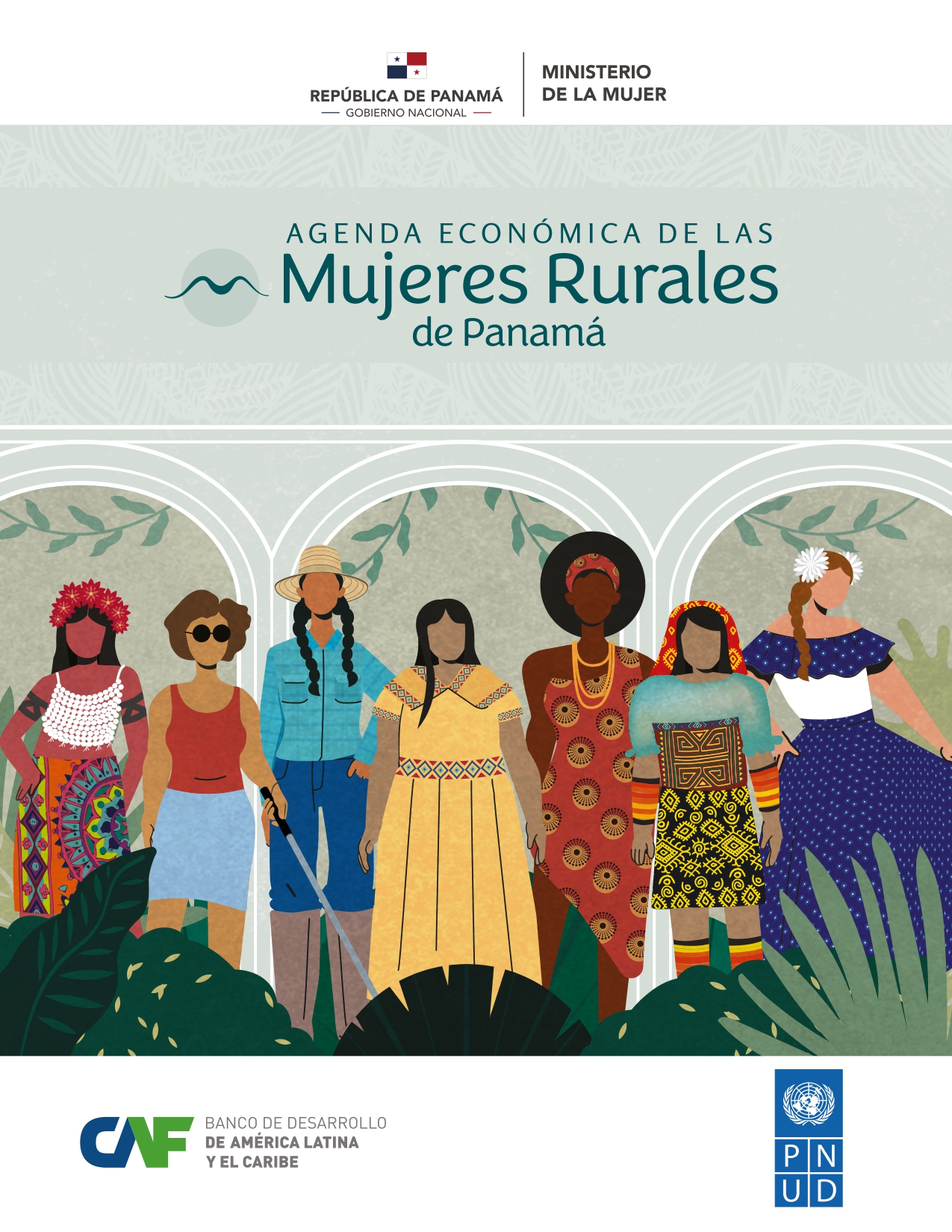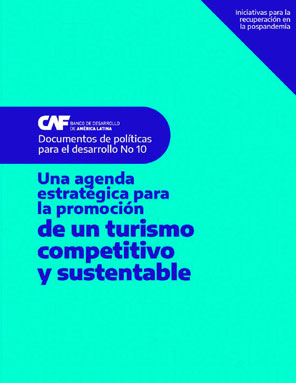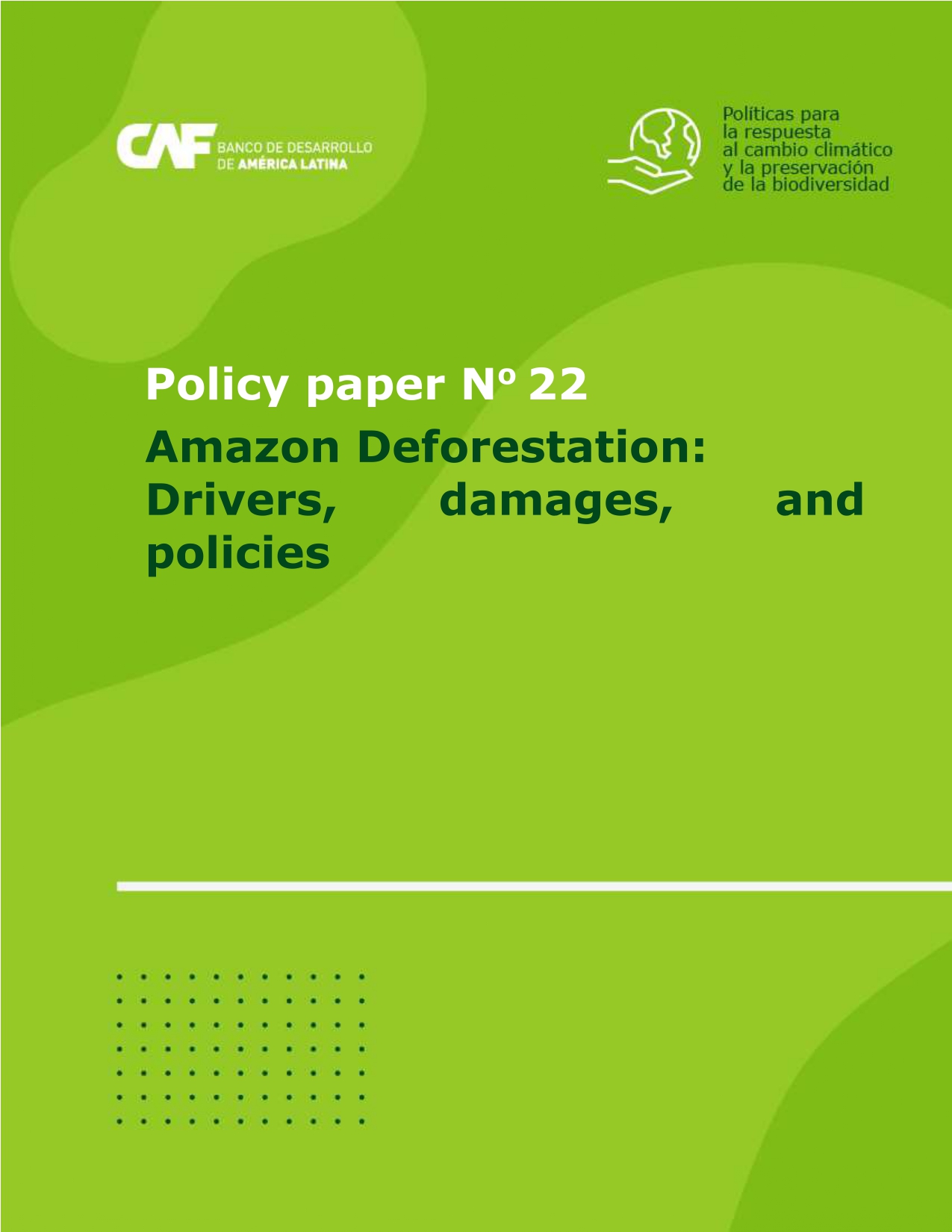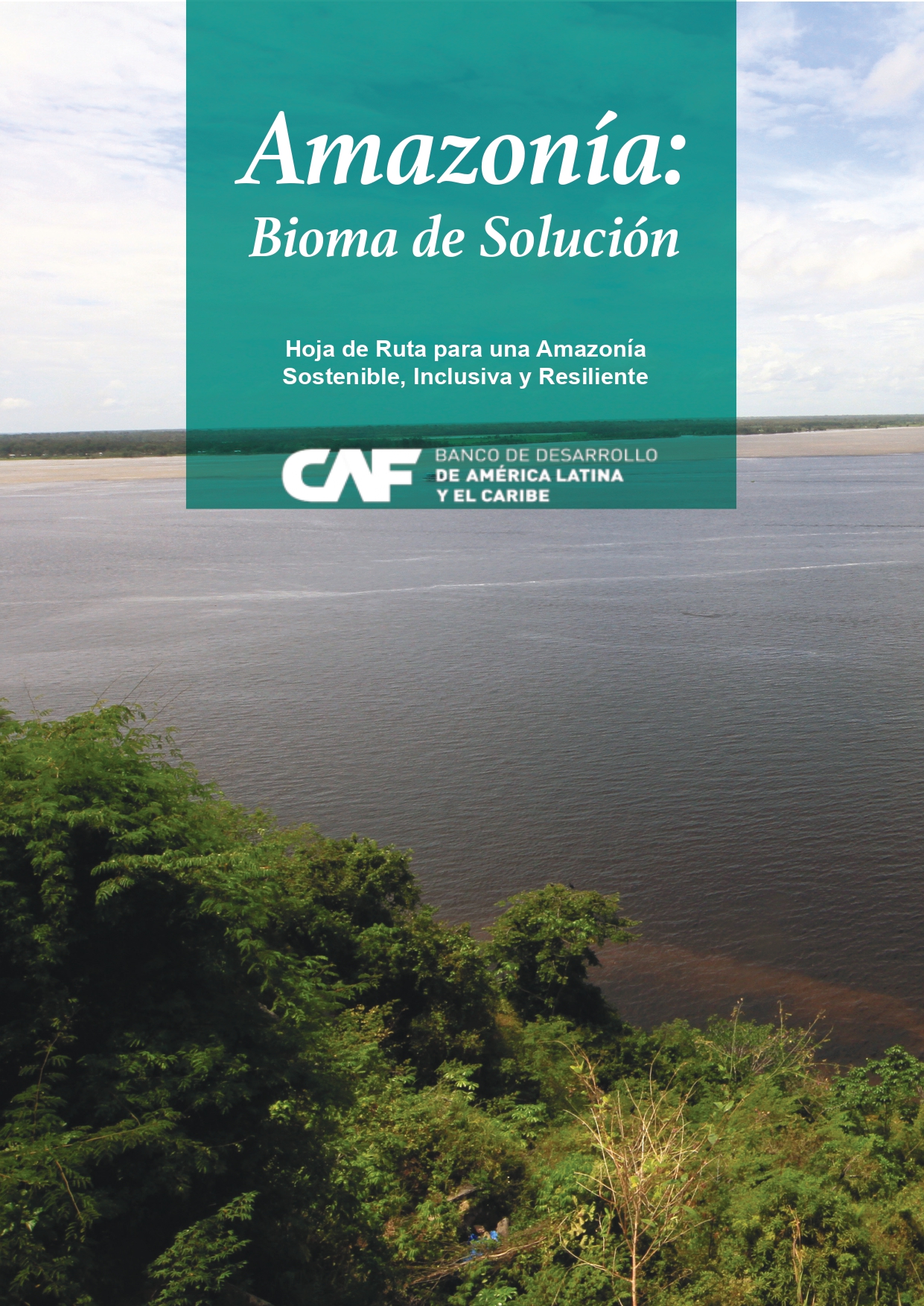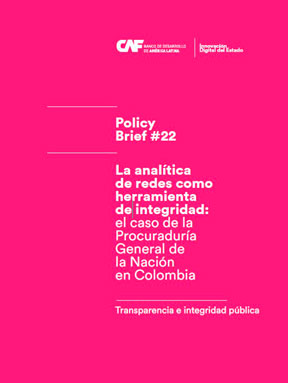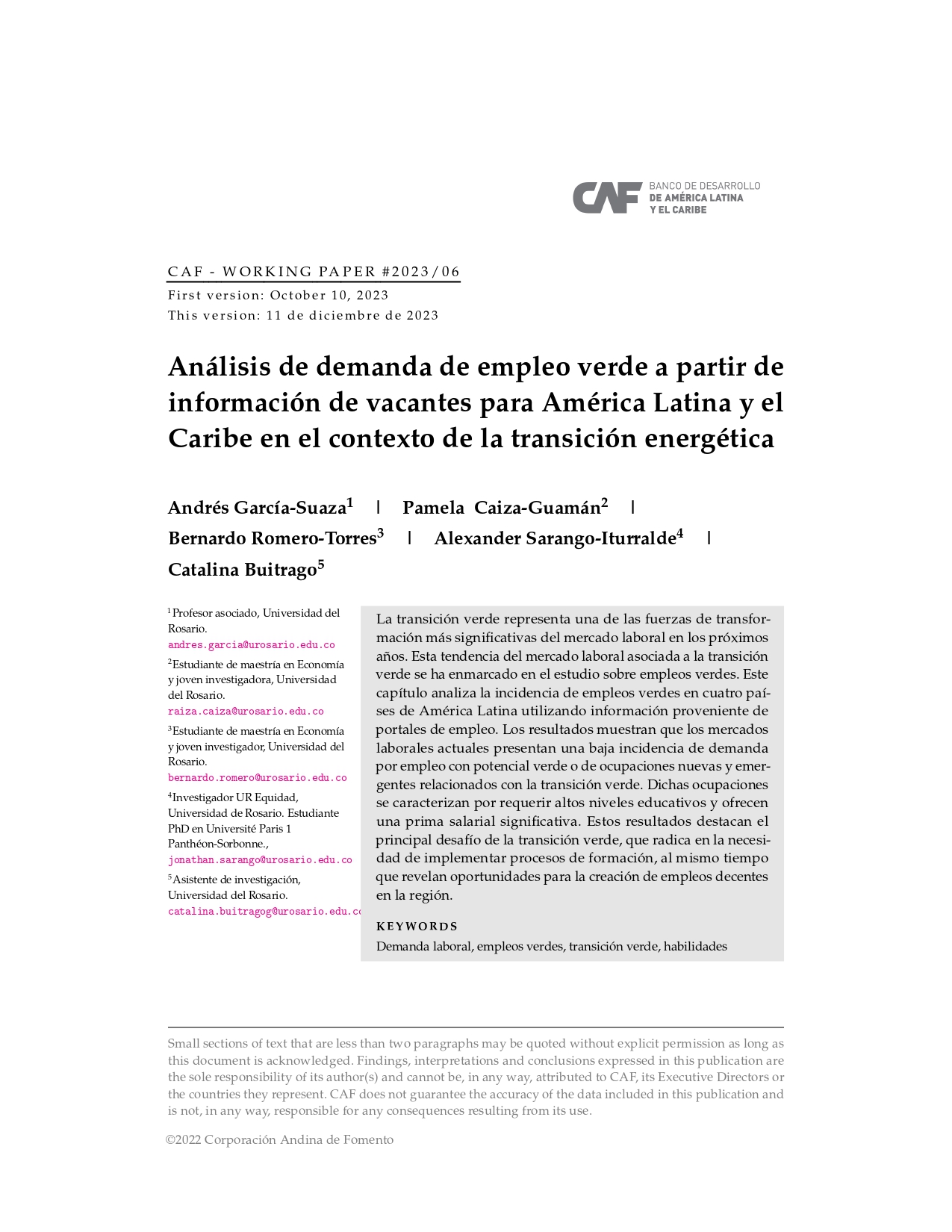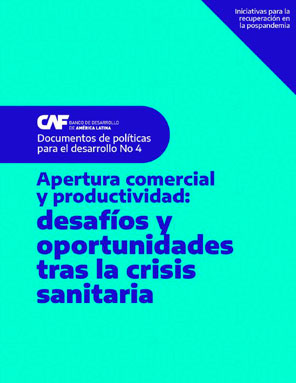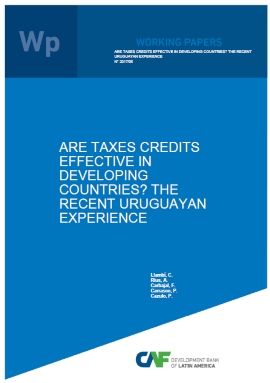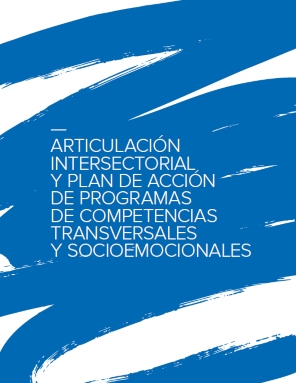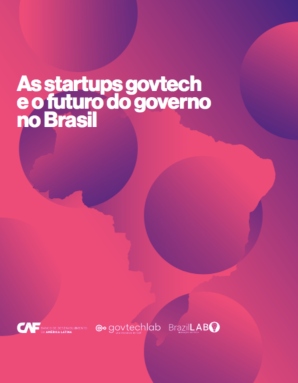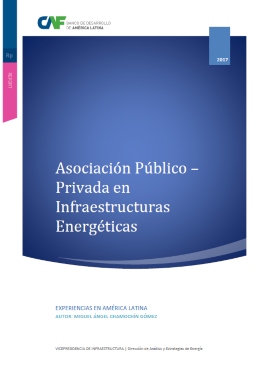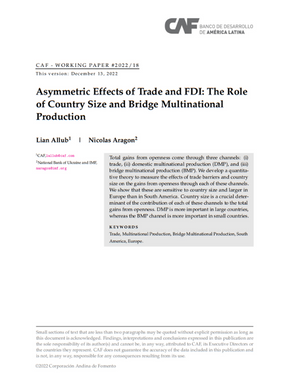Listar 06. Documentos de trabajo por título
Mostrando ítems 8-27 de 469
-
Acción climática conjunta entre Europa y América Latina y el Caribe: Una agenda común para el desarrollo
(CAF-Banco de Desarrollo de América Latina y el Caribe; Caracas, 2023-09)El propósito del presente documento es explorar las áreas de colaboración en materia de acción climática entre la Unión Europea (UE) y América Latina y el Caribe (ALC). Sobre la base de los valores centrales de la ... -
La aceleración digital de los gobiernos e implicaciones de política pública
(CAF; Caracas, 2021-08-31)Este documento explora tres grandes áreas de política pública que dejó la crisis del COVID-19 en materia de transformación digital de los gobiernos. Un primer campo de acción corresponde al reconocimiento y aprovechamiento ... -
Acompañamiento psicosocial individual, familiar y comunitario
(DIALOGAS, Adelante, Agcid Chile, MESACTS y CAF; Caracas, 2019-04-08)En las últimas décadas, en la región, la necesidad de las políticas públicas de protección social de dar nuevas respuestas institucionales orientadas a incluir a poblaciones vulnerables, condujo a diseñar e implementar ... -
Agenda económica de las mujeres rurales en Panamá
(CAF- banco de desarrollo de América Latina y el Caribe; Distrito Capital, 2024-01-09)Este documento tiene como objetivo compartir el análisis de las brechas de género, los desafíos y propuestas que consolidan un instrumento de política pública para la gestión de planes, programas y proyectos en favor de ... -
Una agenda estratégica para la promoción de un turismo competitivo y sustentable
(CAF; Caracas, 2021-07-27)El turismo ha sido, en la última década, un componente altamente dinámico del comercio internacional. El sector tiene una significativa importancia en la economía de América Latina. La región ha registrado un crecimiento ... -
Agilizando el Estado en América Latina: la Comisión Nacional de Mejora Regulatoria de México y sus estrategias de simplificación de trámites y mejora de las regulaciones
(CAF; Caracas, 2020-08-26)En el año 2000 México creaba la Comisión Federal de Mejora Regulatoria (actual Comisión Nacional de Mejora Regulatoria, CONAMER) como instancia de supervisión y mejora regulatoria en todo el sector público federal. ... -
AI and the SDGs in Latin America and the Caribbean
(2024)In the current era of technological advancements, artificial intelligence (AI) stands out as a transformative force impacting health, education, public policies, and sustainability. "AI and the SDGs in Latin America and ... -
Amazon Deforestation: Drivers, damages, and policies
(CAF; Caracas, 2023-07)This chapter discusses the economic drivers, the environmental damages, and the poli cies enacted to fight Amazon deforestation. It provides key statistics about conservation in the nine Amazon countries, and discusses ... -
Amazonía: Bioma de Solución - hoja de Ruta para una Amazonía Sostenible, Inclusiva y Resiliente
(Distrito Capital, 2023)La Amazonía es un componente importante de la biosfera y un bien público mundial, con 6,7 millones de km2 de bosques y un millón de km2 de ecosistemas ribereños. Es el bosque tropical más grande del mundo, mantiene ... -
An exploratory study of entrepeneurial ventures in Argentina, their financing and first years' growth
(CAF; Caracas, 2012)This is a study of entrepreneurial ventures in Argentina, in particular regarding their finance and growth in their early years. We sample young manufacturing SMEs (i.e., with an average of six years and a maximum of ten ... -
La analítica de redes como herramienta de integridad: el caso de la Procuraduría General de la Nación en Colombia
(CAF; Caracas, 2021-01-05)Este policy brief documenta la experiencia de la Procuraduría General de la Nación (PGN) de Colombia, en la adopción de la analítica de redes como herramienta para informar sus investigaciones en materia de lucha contra ... -
Análisis de demanda de empleo verde a partir de información de vacantes para América Latina y el Caribe en el contexto de la transición energética
(CAF- banco de desarrollo de América Latina y el Caribe; Distrito Capital, 2023-12-11)La transición verde representa una de las fuerzas de transformación más significativas del mercado laboral en los próximos años. Esta tendencia del mercado laboral asociada a la transición verde se ha enmarcado en el estudio ... -
ANIA Mexico Use Case: A Replicable Model for AI Governance
(2024)Developed in partnership with Microsoft, this report presents a detailed analysis of Mexico's National Alliance for Artificial Intelligence (ANIA) as a replicable governance model for the Latin America and Caribbean region. ... -
Apertura comercial y productividad: desafíos y oportunidades tras la crisis sanitaria
(CAF; Caracas, 2021-07-13)Esta nota analiza la integración comercial y productiva de América Latina en las últimas décadas, así como su trayectoria reciente luego de la irrupción de la pandemia. Se estudia la evolución del comercio de bienes y ... -
Are Taxes Credits Effective in Developing Countries? The Recent Uruguayan Experience
(CAF; Caracas, 2017-05-17)Investment promotion through tax incentives has been a key component of the growth strategies pursued in Uruguay by the last three administrations. A new regime was established, regulated by the Executive Decree 455, which ... -
Articulación intersectorial y plan de acción de programas de Competencias Transversales y Socioemocionales
(DIALOGAS, Adelante, Agcid Chile, MESACTS y CAF; Caracas, 2019-04-08)La Mesa Regional de Cooperación Técnica sobre Competencias Transversales y Socioemocionales (MESACTS) se constituye en el año 2016 por el acuerdo entre entidades de gobierno de Colombia, Costa Rica, Chile, México, El ... -
As startups govtech e o futuro do governo no Brasil
(CAF y BraziLab; Caracas, 2020-11-04)Esta publicação apresenta o alto potencial de crescimento do ecossistema govtech, dentro da estrutura da renovada estratégia de transformação digital do Brasil. Esse espaço está amadurecendo de forma promissora, o que é ... -
Asociación Público-Privada en Infraestructuras Energéticas: Experiencias en América Latina
(CAF; Caracas, 2017)Las infraestructuras energéticas en América Latina merecen un estudio particular en lo que se refiere a la APP. Sus distintos marcos regulatorios y grados de madurez institucional y operacional, la hacen contar con un mapa ... -
Asymmetric Effects of Trade and FDI: The Role of Country Size and Bridge Multinational Production
(2022-12-13)Total gains from openness come through three channels: (i) trade, (ii) domestic multinational production (DMP), and (iii) bridge multinational production (BMP). We develop a quantitative theory to measure the effects of ... -
Auditorias de Segurança Viária
(2022)Uma Auditoria de Segurança Viária (ASV) é um método sistemático, focado em aspectos de segurança viária, que conduz uma avaliação e revisão formal de projetos viários no qual o objetivo é identificar e avaliar potenciais ...


